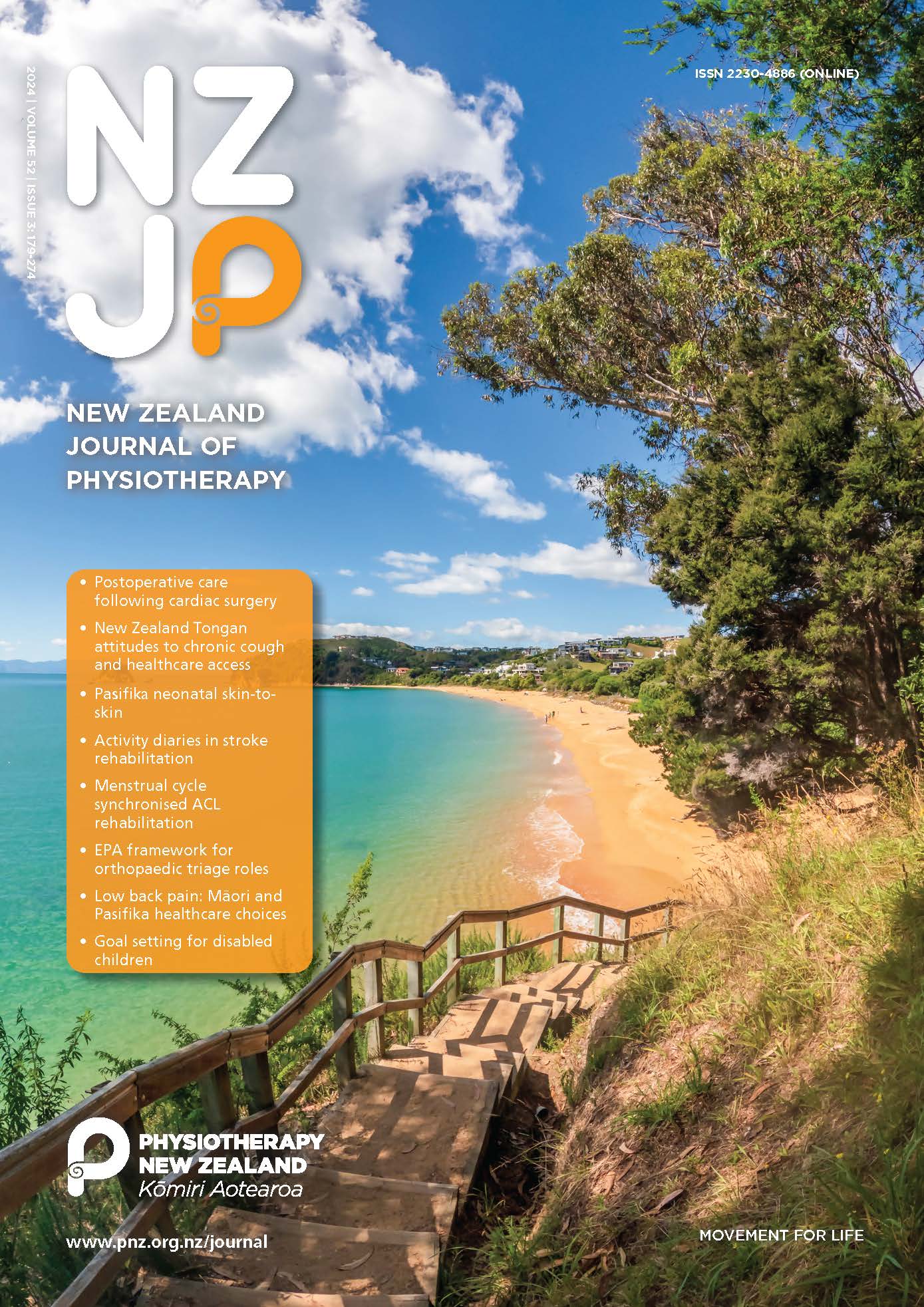What are possible reasons for the different choices of low back pain healthcare between European, Māori, and Pasifika for services funded by the Accident Compensation Corporation?
DOI:
https://doi.org/10.15619/nzjp.v52i3.458Keywords:
Accident Compensation Corporation, Healthcare, Low Back Pain, Māori, PasifikaAbstract
Aotearoa New Zealand has a unique funding model in the Accident Compensation Corporation (ACC), for those who have an injury. The ACC funds a range of healthcare practitioners to treat low back pain from accidental causes and the costs continue to rise. However, there are clear ethnic differences in the services accessed. Data were obtained from ACC and analysed to observe trends in the number of claims and the cost per claim over an 11-year period. The three key findings were: (a) Māori and Pasifika have a lower number of claims than their European counterparts, proportional to population; (b) Māori have fewer claims, but a higher cost per claim than other ethnic groups; and (c) Māori and Pasifika use GP services most frequently, whereas Europeans use physiotherapy. Several factors are potential drivers of these differences, including cost of services leading to delay in seeking help, lack of culturally appropriate information about services, lack of culturally appropriate services, and disproportionately low numbers of Māori and Pasifika in the healthcare workforce. Possible solutions include earlier referral for physiotherapy, building connections with patients, and embracing principles of health models, Te Whare Tapa Whā (Māori) and Fonofale (Pasifika) (which describe the essential elements for health: spiritual, physical, mental and emotional, family, and social).


